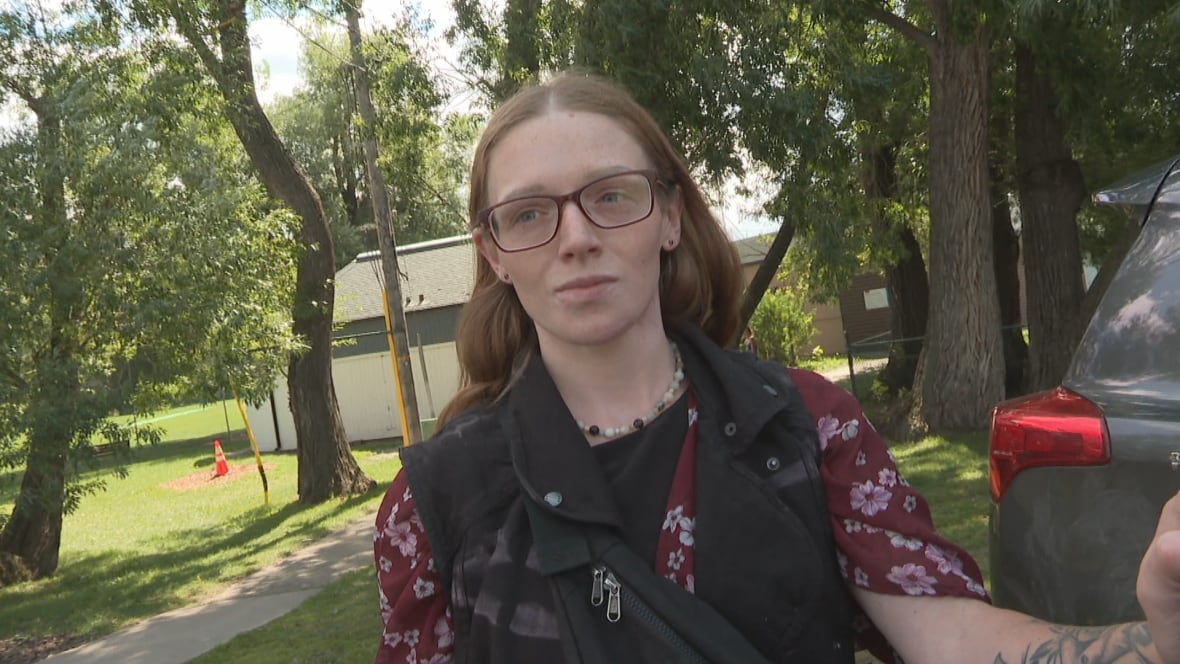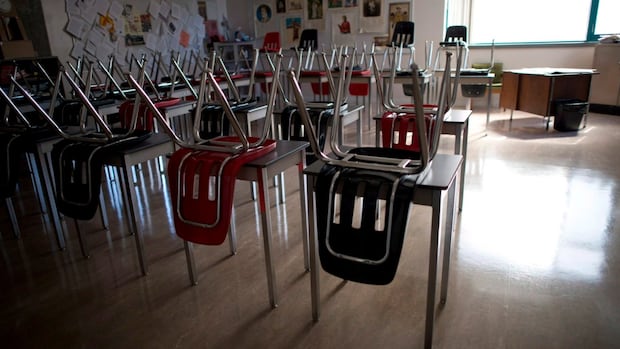Uncertainty looms over back-to-school season for parents this year, as students’ scheduled return to classrooms in September could be met with a labour disruption.
Negotiations are ongoing between the Alberta Teachers’ Association (ATA) and Teachers’ Employer Bargaining Association. The teachers’ union overwhelmingly voted in favour of a strike in June. In response, the provincial body has applied for a lockout vote.
In a statement to CBC News, the Calgary Board of Education said it remains committed to starting the school year on Sept. 2 — but with formal mediation continuing from Aug. 26 to 29, and a labour disruption possible at any moment, many Alberta parents are worried about a possible delay to their children’s return to school.
Nearly 95 per cent of teachers in Alberta voted in favour of strike action in June. Now that the new school year is approaching, the Alberta Teachers Union and the Teachers Employer Bargaining Association are set to enter formal mediation from Aug. 26 to 29.
Calgary parent Calista Dennis is excited for her five-year-old son to start kindergarten next month, but she’s concerned abut the possibility of a strike or lockout.
“That would be a shock,” she said of a strike impacting her child’s first day of school. “For my son, I know that would be kind of disruptive, kind of disappointing.”
Dennis said many young learners are already apprehensive about starting or returning to school, so any disruption could lead to even more confusion and frustration.

As a stay-at-home mom who works remotely, Dennis said she could accommodate having her son at home if the start of the school year is pushed back. But she acknowledged that’s not a luxury most parents have.
“That’s not really how most of society runs for a lot of people,” she said. “And even then, kids should be in school learning.”
Another Calgary parent, Adriena Mackarenko, had hoped the labour dispute would have been resolved by now.
“It’s back in the news again, and obviously we’re getting closer to school, and now it’s becoming more real,” said Mackarenko, who has a nine-year-old going into Grade 5 this fall, and a seven-year-old starting Grade 2.
“I was hoping they would resolve something before we needed to worry about it… Kids are going back, and what am I going to do with my children in September?”

Mackarenko said the uncertainty around her kids returning to school is not ideal.
“Going back to school is challenging enough,” she said. “Trying to come up with all of these alternative solutions to how we’re going to handle this if the schools do get locked out … I don’t need that on my plate as well, right? Life is hard enough.”
She said disrupting students’ schedules would have negative consequences for children and their families.
“It’s nice to have a predictable place to send your kids every day,” Mackarenko said. “They are used to those routines as well, and kids thrive on routine, so changing it partway through September just makes life more challenging for families.”
ATA president acknowledges concerns
Jason Schilling, president of the ATA said he understands where concerned parents are coming from.
“I recognize fully that it does create a level of uncertainty for parents and for other folks who are out there,” he said. “But it’s just the nature of how bargaining is right now.”
The ATA says it currently has 51,000 members. More than 38,000 teachers participated in June’s strike vote, with 94.5 per cent voting in favour.
The last time the ATA went on strike was in 2002. Schilling, who was among the teachers that took part in that strike, said teachers don’t necessarily want to take job action.
“Ideally, we would like a negotiated settlement,” he said. “Teachers don’t want to go on strike. They want to be in their classrooms working with their students. There’s always a level of excitement to meet your new students in September.”
But Schilling said teachers are facing large class sizes and a lack of resources, in a school year where Alberta’s per-student education funding is among the lowest of all provinces.
“We’re kind of picking off where we let in June, but I fear that things will be worse,” said Schilling.
In a statement, Alberta’s office of Treasury Board and Finance reiterated the province’s commitment to invest $9.9 billion in education, with $1.6 billion dedicated to addressing the needs of complex classrooms.
Schilling said that won’t cut it.
“In terms of budget for education, we also have the most kids in the system than we’ve ever had,” said Schilling. “We also have large classrooms with the most complex needs that my colleagues have seen in a really, really long time, and they don’t have the resources to meet those kids’ needs every day.”
Following June’s strike vote, the ATA has 120 days to take job action. Their deadline is Oct. 7. If teachers do decide to take job action, the union would need to give 72-hour notice ahead of going on strike.







